National roll-out of micro:bits to Scotland’s primary schools
The following article originally appeared on Micro:bit Educational Foundation website on 23rd May 2022.
Scotland’s Education Secretary celebrates world-leading investment in Computing Science at primary age with school visit. Methilhill Primary School in Fife, Scotland, welcomed Cabinet Secretary for Education and Skills, Shirley-Anne Somerville, for a visit to meet children using the new micro:bit coding devices. The tiny computers are being given to all primary, secondary and additional support needs schools in Scotland as part of a landmark investment to improve the quality of, and participation in, computing science and digital literacy in Scottish schools.
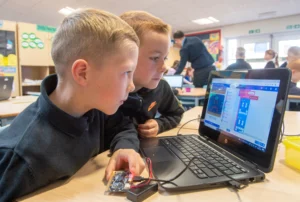 Delivered by education non-profit, The Micro:bit Educational Foundation, the micro:bits are pocket-size entry-level coding devices that offer children an enjoyable entry into coding and computing science. There are over six million devices already in use across the globe, including most UK secondary schools. In the coming weeks, all primary schools across Scotland will receive twenty devices alongside a host of new teaching resources tailored for primary school level in a world-leading investment from the Scottish Government to develop digital skills in even younger children.
Delivered by education non-profit, The Micro:bit Educational Foundation, the micro:bits are pocket-size entry-level coding devices that offer children an enjoyable entry into coding and computing science. There are over six million devices already in use across the globe, including most UK secondary schools. In the coming weeks, all primary schools across Scotland will receive twenty devices alongside a host of new teaching resources tailored for primary school level in a world-leading investment from the Scottish Government to develop digital skills in even younger children.
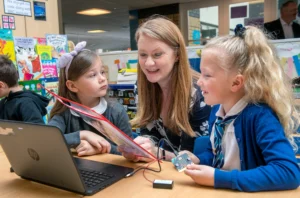 During her visit, Somerville saw the devices come to life in the hands of children aged between 6-8 in an exciting, interactive lesson around health and wellbeing. micro:bit ambassadors shared an insight into the wide range of capabilities the nifty devices offer, while teachers at the school explained first-hand how the new investment is helping integrate digital skills and computational thinking into lessons across the entire curriculum as part of the Scottish Government’s Scottish Technology Ecosystem Review programme.
During her visit, Somerville saw the devices come to life in the hands of children aged between 6-8 in an exciting, interactive lesson around health and wellbeing. micro:bit ambassadors shared an insight into the wide range of capabilities the nifty devices offer, while teachers at the school explained first-hand how the new investment is helping integrate digital skills and computational thinking into lessons across the entire curriculum as part of the Scottish Government’s Scottish Technology Ecosystem Review programme.
Investing in future skills
Digital skills and computational thinking can greatly enhance a child’s creativity and life chances. However, recent research from The Micro:bit Educational Foundation found that 61% of primary school teachers in the UK responsible for teaching computing have no background in the subject, while three in five cite lack of resources as a barrier to teaching computing.
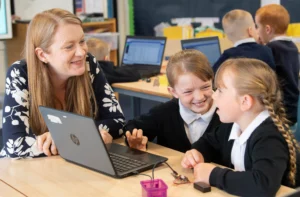 Shirley-Anne Somerville, Cabinet Secretary for Education and Skills, Scottish Government: “It has been inspiring to see first-hand how these devices can help to get children thinking creatively and to be enthused about technology. It’s an exciting prospect to imagine these scenes being replicated in schools all over Scotland in the coming weeks and months, and we’re proud to be leading the world in creating quality engagement in computing sciences among our young learners.”
Shirley-Anne Somerville, Cabinet Secretary for Education and Skills, Scottish Government: “It has been inspiring to see first-hand how these devices can help to get children thinking creatively and to be enthused about technology. It’s an exciting prospect to imagine these scenes being replicated in schools all over Scotland in the coming weeks and months, and we’re proud to be leading the world in creating quality engagement in computing sciences among our young learners.”
Aimée Fagan, Head of Partnerships at Micro:bit Educational Foundation, said: “Digital literacy and computational thinking are increasingly important core skills, and we know the earlier you learn them, the better. Today has been a brilliant showcase of the possibilities micro:bits offer in the hands of younger children and how accessible they can make the first steps into computing.”
>
Alix Rolland, Deputy Head Teacher at Methilhill Primary School, added: “We’re committed to embedding computing science and digital literacy into our classrooms, right across the curriculum. It’s been a joy to see the first of many micro:bit sessions at Methilhill Primary School today, and the support from Micro:bit has given our teachers the tools and confidence they need to get our children inspired by technology.”
About Micro:bit Educational Foundation
The Micro:bit Educational Foundation is a not-for-profit organisation founded in the UK in 2016, with the aim of inspiring every child to create their best digital future.
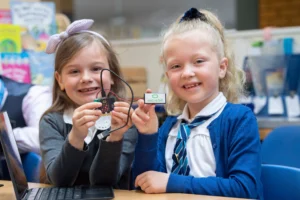
We do this by:
· developing hardware and software that inspires young people to get excited about technology and the opportunities it presents for them
· creating free, user-friendly educational resources to support teachers in delivering engaging and creative lessons
· working with like-minded partners to deliver high-impact educational programmes across the globe.
The micro:bit launched in the UK in 2016 by giving free devices to every S1 / Year 7 student as part of BBC Make it Digital, an unprecedented and highly ambitious project. It is now not only being used in most secondary schools to teach 11 – 14-year olds but is also popular with primary school teachers for 5 – 11-year olds.
The Foundation has donated micro:bits to key institutions, including the National Centre for Computing Education’s schools lending scheme in England, Digital Xtra Fund in Scotland, Ulster Universities and Libraries NI in Northern Ireland. Through these schemes, approximately 30,000 devices were donated directly to schools, libraries and NGOs.
The Foundation offered up to 5,000 micro:bits to families in the UK wanting to continue learning at home during the ongoing COVID-19 pandemic. Following a single tweet, the Foundation received 8,500 requests in 13 hours.
Editorial enquiries
You can contact the Micro:bit Educational Foundation at [email protected]

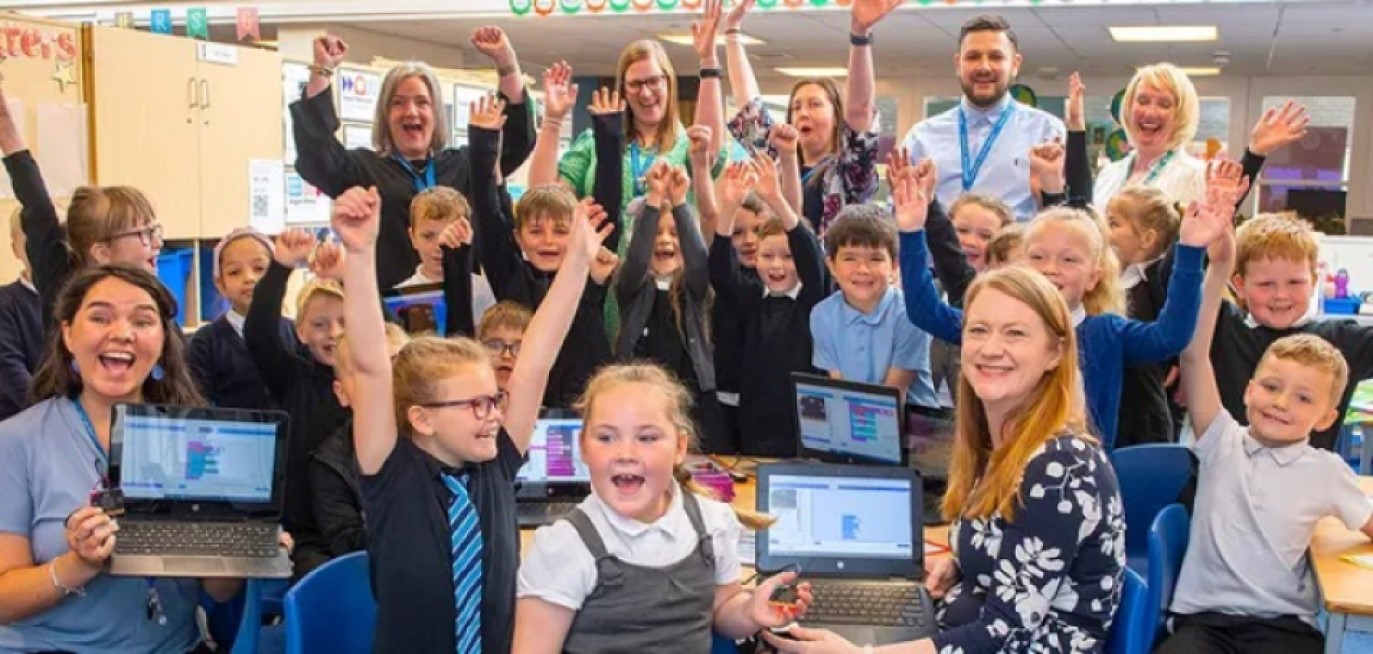

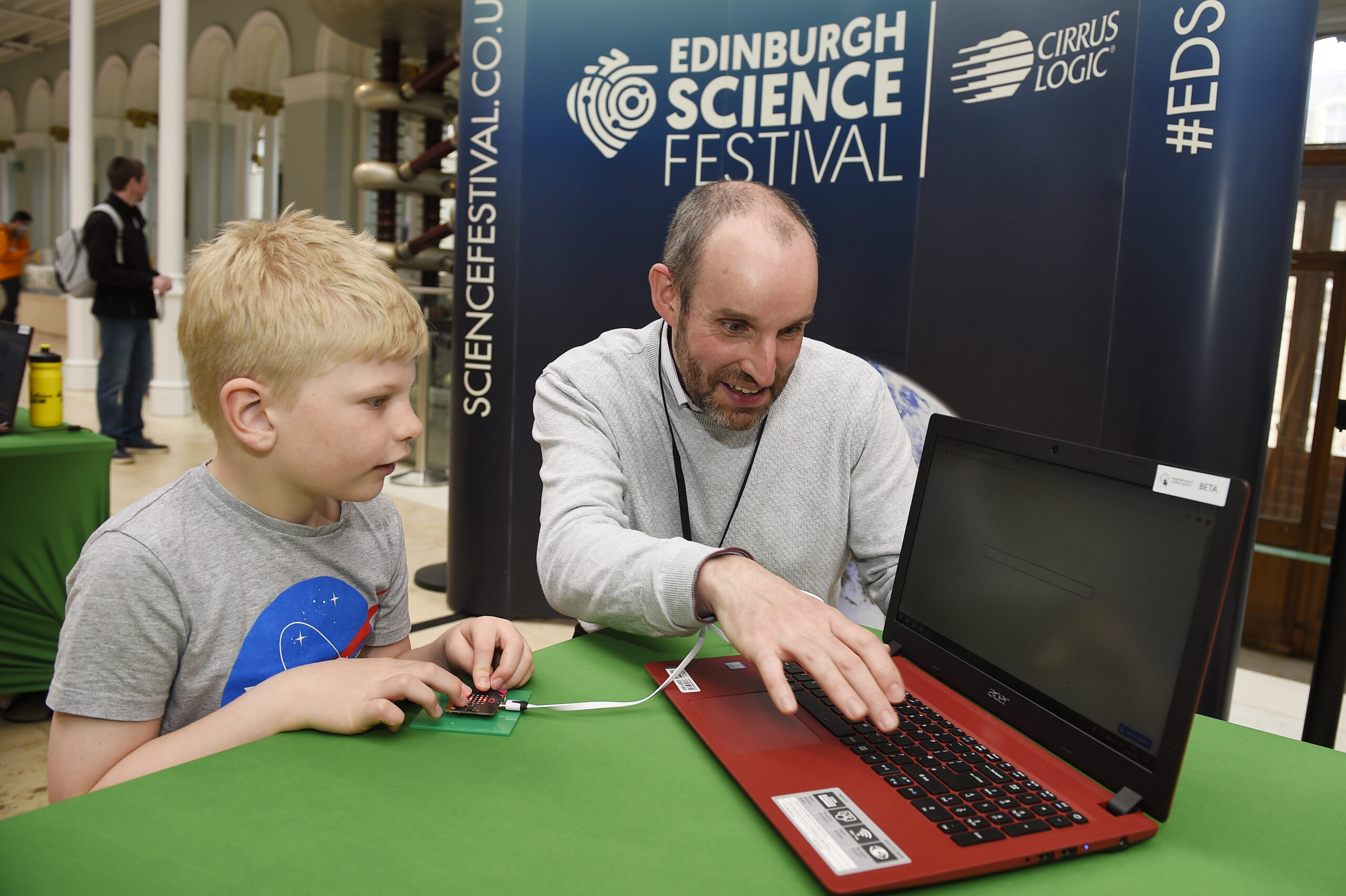

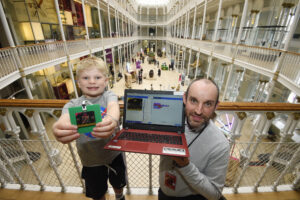
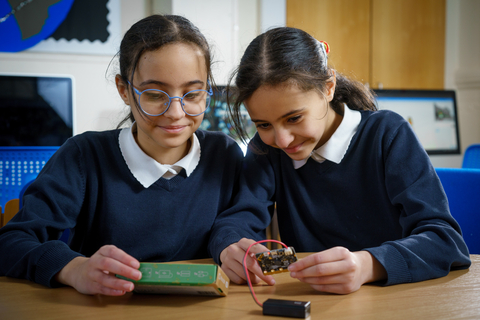


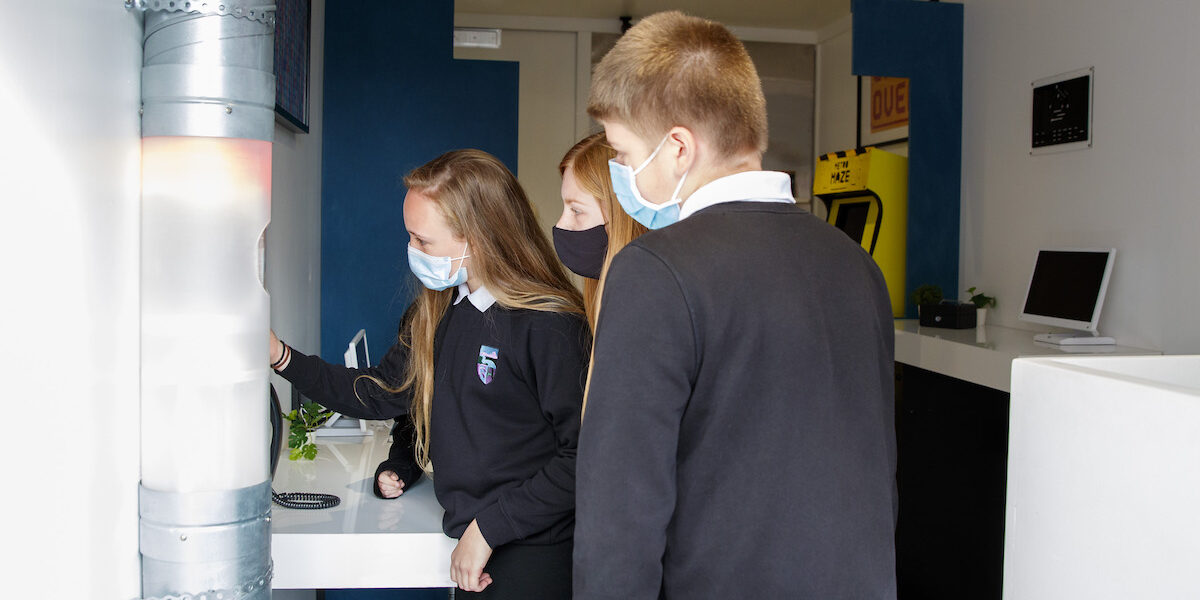





 Over 1,500 students from the Highlands took part in this year. Primary school pupils have had the opportunity to participate in digital-based workshops and presentations, learning about coding, computer game creation, and hardware and programming, giving them experience of digital signals, binary code, Light Bot, Scratch, Code Bugs, Spheros, and Ardunios. School teachers and S6 pupils have been given support and training to boost their knowledge and confidence, and will now host STEMD clubs for S1-S4 pupils. In addition, the Inverness Science Festival took place in May, offering digital-based interactive pop-up activities at their popular Family Events, alongside structured workshop sessions.
Over 1,500 students from the Highlands took part in this year. Primary school pupils have had the opportunity to participate in digital-based workshops and presentations, learning about coding, computer game creation, and hardware and programming, giving them experience of digital signals, binary code, Light Bot, Scratch, Code Bugs, Spheros, and Ardunios. School teachers and S6 pupils have been given support and training to boost their knowledge and confidence, and will now host STEMD clubs for S1-S4 pupils. In addition, the Inverness Science Festival took place in May, offering digital-based interactive pop-up activities at their popular Family Events, alongside structured workshop sessions.